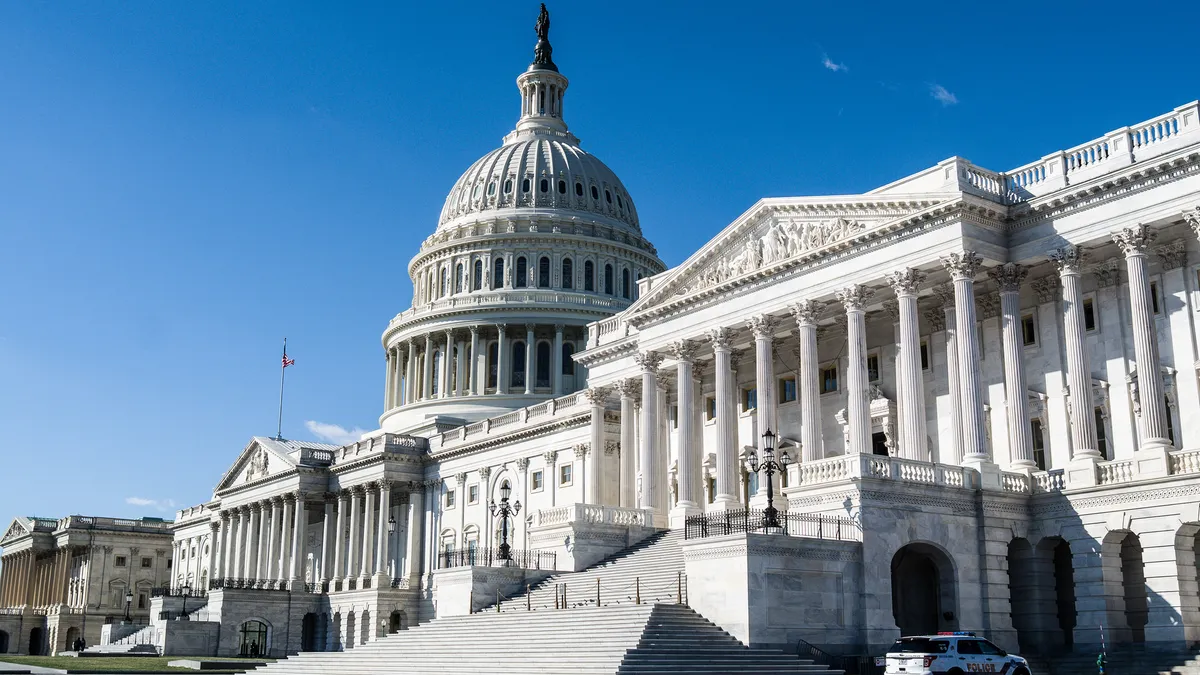Dive Brief:
- A letter from 70 stakeholders including bicycle safety advocates and health groups has urged the U.S. Senate to not attach the currently-stalled American Vision for Safer Transportation Through Advancement of Revolutionary Technologies (AV START) Act to a bill reauthorizing the Federal Aviation Administration (FAA), which is due to come to the floor soon.
- The letter says attaching the AV START Act as a rider "would be ironic at best and lethal at worst," as it would exempt millions of vehicles from meeting safety standards. It says the Act needs more safeguards, government oversight and industry accountability.
- It calls for changes to the legislation, including limiting exemptions from safety standards, providing for data collection and maintaining the rights of states and local governments to regulate autonomous vehicles (AVs) when the federal government does not. "These changes would protect innovation while providing essential protections for AV occupants as well as everyone sharing the roads with them for many years to come," the letter reads.
Dive Insight:
Multiple sources told Smart Cities Dive earlier this year that attaching the AV START Act to legislation reauthorizing the FAA was one of a number of options being explored, but this letter raises serious questions given what it says is the uncertainty around the legislation and its provisions. The bill passed the Senate Commerce Committee last year by a voice vote, yet the AV START Act has failed to make it to the floor of the full Senate, leading lawmakers to consider other maneuvers as they try and assure its passage.
But safety concerns have continually been raised, including in a recent letter from some Senators, such as U.S. Sen. Dianne Feinstein, D-CA, who led a letter expressing concerns around their safety and implementation. That letter also called for new safety standards, clear direction to federal regulators to analyze data on AV deployment, as well as the development of cybersecurity safeguards to protect that data.
It is likely frustrating for U.S. Sen. Gary Peters, D-MI, who helped pass the legislation through the Senate Commerce Committee last October alongside co-sponsor U.S. Sen. John Thune, R-SD. Peters has said publicly that more AVs on the streets will reduce traffic fatalities, although more study is needed on the impacts to the labor market. And it remains a sore spot for their colleagues in the House of Representatives, which passed its own piece of legislation, known as the SELF DRIVE Act.
Perhaps in a bid to turn up the heat on the Senate, the House Energy and Commerce Committee has sent out press releases marking one year since the bill’s passage and commemorating significant milestones in its development.












